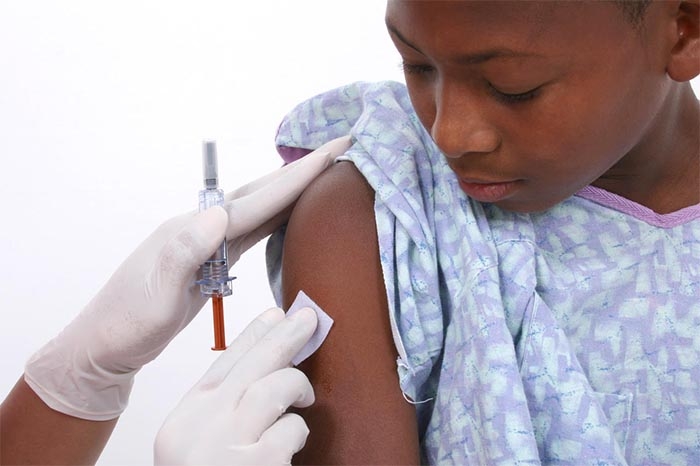
Tanu Henry | California Black Media
Pfizer and Moderna, two of the major pharmaceutical companies leading the production of COVID-19 vaccines, are taking steps to make sure their treatments are safe for children.
As of now, though, neither vaccine has been approved for children under 16 years old to receive.
“The trials in children are now only beginning. We are discovering what the appropriate doses are for adolescents and perhaps even infants,” said Dr. William Schaffner, who is professor of Preventive Medicine in the Department of Health Policy as well as Professor of Medicine in the Division of Infectious Diseases at the Vanderbilt University School of Medicine in Nashville, Tenn.
“We expect the results of those trials this summer, everything going well,” he said.
Pfizer says its vaccine is already safe for children between16 and 18 years old. Now, the company has begun phased testing on children between 12 and 16 in California and across the country. Their intention is to follow with trials on kids 12 and under.
Moderna is in the process of recruiting children between the ages of 12 and 17 to participate in its vaccine trials across the country.
Stéphane Bancel, chief executive officer of Moderna, said his company’s goal is to complete the studies before the Fall 2021 school year begins.
“This adolescent study will help us assess the potential safety and immunogenicity of our COVID-19 vaccine candidate in this important younger age population,” he said. “We hope we will be able to provide a safe vaccine to provide protection to adolescents so they can return to school in a normal setting.”
In California, more than 300,000 children under age 17 have been infected with the coronavirus since last March. There have been six deaths, according to numbers compiled by the California Department of Public Health.
Among African American children in the state, there have been 7,945 confirmed COVID-19 cases and one death.
Schaffner said the vaccines currently being administered are safe for women who want to become pregnant and for mothers who are breastfeeding.
“Those women need to be reassured. The mRNA does not go anywhere near, in our cells, to the human DNA in the mother or the babies,” he said, referring to the proteins present in the vaccines.
“This is a safe process for all of them,” he said.




